Every year — at least from 2000 to February 2019 — over 55% of students who sit for the West African Senior Certificate Examination(WASSCE) in Ghana, Nigeria, Sierra Leone, The Gambia and Liberia do not pass the exam or achieve very poor results that leave some of them sitting down at home for another year; isolated and depressed. Note: Failure in this sense means not reaching the pass mark in any of the three core subjects including Math and English Language.
Do students fail the WASSCE because they don’t practise with WAEC past questions or fail to use to the WASSCE Syllabus as a guide to prep for the exam? Do students fail the WASSCE because they’re just not intellectually capable? I will examine the root cause of this issue and more in this guide and show you how you can pass the WASSCE or WAEC examination without “losing your fingers”(like a boss).
Note
It has come to our attention that some individuals have copied some of the contents of this page without giving us credit and are monetising it. Please do not directly or indirectly monetise any material got from this page (for example, by posting it on pay to download sites, survey to download sites or sites where you offer your services). Doing so is a breach of our Terms of service.
Endeavour to give us credit when you share any content on our website so we can reach more students. This is in line with our vision to support individuals (especially in Sub-Saharan Africa) in their quest to self-actualisation through education.

The abysmal failure rate of students on the WASSCE pains my heart as an educator but the brutal truth is most of you that are reading this paragraph will likely fall into the category of people that fail the WASSCE(sorry, like I said, I have to tell you to the cold heart truth). This is because some of you reading this lack the patience and discipline to read and follow the proven strategies — mentioned in this definitive guide—on how to pass the WASSCE like a boss (yes, like a boss).
So if you came here expecting a 300-word article without substance or a shortcut on how to pass the WASSCE (expo, runs, etc), then you’re in the wrong place. However, if you came here with a burning desire to learn and apply the strategies and tips that have helped below average students ace the WASSCE with no shady tricks, then you’re in the right place.
This online guide on how to pass the WASSCE / WAEC examination – published on the 16th of August 2015 — is not like 99% of others on the internet and this is far from an exaggeration.
So, what’s the difference?
Well, it’s way better in the following ways:
- It’s the first ever free in-depth guide of over 7000 words published on the web(if a 7000-word actionable guide scares or bores you then you’re in the wrong place and may likely not be ready for the WASSCE)
- It contains contributions from people like myself who went through some struggles you‘re likely going through but ended up with great results after applying some not-well-known strategies in this page
- It’s meant to offer the best help to students wishing to write the exam in school(May/June) or as private candidates(in November/December or January/February)
- It has been shared over 100 times on social media and read by over 50,000 students( thanks to the widely appreciative comments and to all those who shared this work)
I’ve put in my sweat and dozens of hours of work to make sure this gives extreme value to every single soul that reads it. I’m more than satisfied when I receive messages or comments such as this:

Once again, I’m not exaggerating when I say you’re in the right place if you want to know how to pass the WASSCE at one sitting.

Take a deep breath. In fact, reward yourself with a cookie because you’ve done well.
Other Contributors
Fredrick Kofi Tam: All A’s (2012)

About: Fredrick attended Mfantsipim School and wrote the SATs after he graduated. He got a full scholarship to Columbia University, an Ivy League school in USA. He graduated in 2018 and started working with Git Hub, which was acquired by Microsoft the same year.
Common Resolutions To Why Students Fail The WASSCE
I’ve heard many people make the following conclusions concerning the poor performance of a majority of students who sit for the West African Senior Certificate Examination:
- The educational system in West Africa is poor
- The WASSCE is dysfunctional exam
- Students who fail the WASSCE 4-5 have learning disabilities which affects their cognitive abilities
- Students who failed the WASSCE may have been intentionally marked down by the markers
There’s validity to the conclusions which I would like to address and resolve.
Poor Educational System In West Africa

It’s no doubt the educational system in West Africa(except for some very expensive international private school) has a long way to go in meeting the standards of even average schools in the Western World. However, dwelling on this as a reason for not performing on the WASSCE only dis-empowers you. Realise there are countless individuals that climbed the educational ladder who went to the worst secondary schools in West Africa.
Besides, we have the internet which has made education widely accessible.
Dysfunctional System Of The WASSCE
The West African Examination Council has areas it needs to improve on regarding the kinds of test questions it sets on the WASSCE. Perhaps WAEC can learn from international exam bodies such as the College Board, which gives students access to basic formulas on the test sheet of the SAT Mathematics paper. This means students don’t have to waste time cramming formulas instead of learning how to solve problems.
In the real world, no one would ask you to recite the quadratic formula (because you can look at your textbook as a reference or perform an internet search) however, you might be asked if you know how to use it to solve a quadratic equation without using a scientific calculator.
Until the WAEC improves the quality of questions it sets on the WASSCE, it’s important to do your best to pass the WASSCE as many other students have done.
Wrong Marking
A person confident on what he or she wrote on the WASSCE wouldn’t think twice about going for a remark so this isn’t much of an excuse.
Therefore, it’s important to aim high and avoid making unnecessary mistakes that can cost you a lot(more on this later).
Learning Disability
As of 2013 in England, 365,000 people (0.7% of the population) experienced learning disability. Learning disability is something that’s widely ignored in Africa meanwhile children, youths or adults who face a learning disability in West Africa (from mild to high) are ridiculed or marginalised.
Learning disability affects Cognitive Ability, which can affect academic performance. There’s a lot of uncertainty about IQ(Intelligence Quotient or another term for Cognitive Ability) and how it relates to academic performance or overall life achievement but studies have shown IQ to be strongly correlated with academic and economic success in an increasingly cognitive demanding world. IQ is an imperfect measure of a intelligence so it’d be foolish to say you failed the WASSCE or can’t achieve much academically because of your low-intelligence (because of your learning disability).
Most people assume they have a learning disability and allow that to define their self-worth or realistic ambitions in life whereas the real issue is with the way they learn(no persistence in study, low willingness to study, lack of interest in school, etc) or some other issue not relating to disability(family problems, stress, anxiety, etc). They forget the brain is malleable and has a capacity to learn new things or adapt to new stimulation.
If you can read and understand the contents of this guide and have made it to your final/senior year class at a proficient high school in Africa, then you’re likely not to have any learning disabilities. However, it’s important to seek professional help if you experience any form of learning disability.
I did it, Why Can’t You?
I’m usually not the smartest guy in the room but I have this ability to improve and evolve into something formidable. This attitude helped me move from a below average student to achieving one of the best WASSCE results in my class.
My Story

I’ve
written extensively about myself on my personal site so I’d keep this story
relevant to this guide.
Most of my teachers and classmates considered me among the weakest students
especially with subjects that involved calculations and this was true. In fact,
at senior high school, I couldn’t convert fractions to decimals or perform a
simple change of subject (this is to tell you how bad I was).
I couldn’t meet my mum to help because I was ashamed and worried about her reaction. My parents got a few private teachers to help me but none was of any significant help.
I got used to thinking other students who performed far better than I did had some “magical power” or some innate abilities that I didn’t have. I thought the only way for me to succeed academically was to cheat or fake it. But I knew I wasn’t always going to get away with any of these options so I did my best to stay clear.
After my dad passed away in 2007, my mum moved my siblings and I to Ghana for us to continue our education. My academic problem followed me to my new school and soon everyone was quick to recognise me as a below-average student.
In moved from my first school in Ghana a better school and the my academic problem still followed.
I was tired of being ridiculed for my academic performance and considered an under-performer. I wanted to make a change but I had no clue where to start. Most of my classmates were ahead of me but I knew I had to start somewhere and slowly build up.
I decided to meet my teachers (even the strict ones) and juniors to ask for explanations to topics I struggled with because I realised they’re more likely to teach me in a more effective way as a way of appreciating my effort(some of my classmates didn’t like this). I developed friendly relationships with some seniors in high school and occasionally met them for help. I ended up with a knowledge of things I should’ve known from junior high at senior secondary school.
I realised I understood topics better when I applied a few strategies in this guide and with every consistency in my study attitude came progress. My academic performance started to improve and this didn’t stop even after I took a semester off because my mum didn’t have enough money to pay my fees(she ended up selling our main house in Nigeria). I moved from the bottom 10 percent to the top 10 percent in my class. I even performed better than one of my friends that told me I’d never perform better than him during our first year of senior secondary school.
I realised students no longer ignored me when they needed explanations to various topics and I enjoyed helping them out because it made me deepen my understanding of the topics. I maintained my consistency till the last day I finished high school and topped it off with one of the best WASSCE results in my class and school.
Today, I look back in smiles because if someone told me in junior high I’d get
an A1 in Elective Mathematics and a B2 in Core Mathematics, I’d think they were
crazy. But it happened.
If I did it, why can’t you do it too?
Why This Guide?

I wrote this guide thinking about myself and how I changed the course of events to achieve a WASSCE result most people wouldn’t have expected when I started senior high school.
I started LarnEdu to inspire and support students in their quest to self-actualisation through education and as someone who went through the WASSCE system (unlike my younger siblings), I sought to provide the best information relating to prepping for the WAEC exam which included this guide and other resources on this guide.
I don’t care if you’ve failed the WASSCE 10 times or if you’re about the sit for the WASSCE the first time; this guide if for you.
How To Pass The WASSCE

To prepare for the WASSCE, there are certain steps you need to take before the exam day.
Part 1: Actions To Take Before The Exam Day
The first step you need to take to pass the WASSCE / WAEC examinations is:
Have The Strong Desire To Pass The WASSCE / WAEC Examination
I want to ask you one simple question:
How bad do you want to pass the WASSCE?
Your answer to the question above would define how strong your desire is to pass the WASSCE.
If you tell me you want to pass the WASSCE as bad as you want to breathe because you’re hungry to be a Mechanical Engineer, then I’d know you have a strong desire to pass the WASSCE.
The truth is most students fail the WASSCE because they never had a strong desire to pass it. They see the WASSCE as a jury that has already judged them before their first court appearance.
And if they had an option, they’d not appear before the court which is an automatic admittance of guilt. These students lose the war before it’s even fought.
When you have a strong desire for success, your body and mind would be optimised to chase it.
Without desire:
- There is no spirit
- There is no hope
- There is no goal
- There is no fuel
- There is no flame
Lit your fire of desire today and let it BURN.
Find The Right Motivation

Don’t confuse having a strong desire to pass the WAEC examination with being motivated to do so.
According to Word Web dictionary:
Desire is the psychological feature that arouses an organism to action towards a desired goal; the reason for the action; that which gives purpose and direction to behaviour.
Thus, you may have a desire for something, but if you’re not motivated to go for it, you may never have it.
For example, your desire to pass the WASSCE may inspire your motivation to obey the instructions on this guide.
Have Faith That You’ll Pass The WASSCE / WAEC Examination
I know not all students like to hear the word “faith” because it sounds “woo-woo”. However, having faith in your ability to pass the exam is the same as being optimistic.
According to Arthur Dobrin:
Faith is an expression of hope for something better. More than a wish, it is closer to a belief, but not quite. A belief is rooted in the mind. Faith is based in the heart.
We act in faith when there is no guarantee, no certainty. No one knows what kind of life an infant will have, yet people continue to have children. No one can know how life with our mates will turn out, yet we continue to have faith our relationships will last a lifetime.— psychologytoday.com
Psychologytoday.com
Having faith in the possibility you’ll pass the WAEC examinations puts you in the right frame of mind and increases your confidence to crush any paper on the WASSCE / WAEC examination.
Avoid fellow students that are always negative about their chances of passing the WASSCE as this can affect your mental state.
The effect of mixing desire, motivation and faith is psychologically rewarding.
Apply Some Healthy Dose Of Scepticism
I know this may sound counterproductive to the points I mentioned above but applying some healthy those of scepticism gives you a chance to self-reflect on your study activities or patterns in other to identify subject areas to improve on.
For example, you might be tempted to stop revising core/general mathematics if you’ve always performed well in the subject and if this is reaffirmed by your classmates or teachers. However, applying a healthy dose of scepticism can make you discover a trivial topic that may catch you off guard if a question is asked on during the WASSCE for core mathematics.
Find Your Learning Style(AKA Study How Best You Learn)
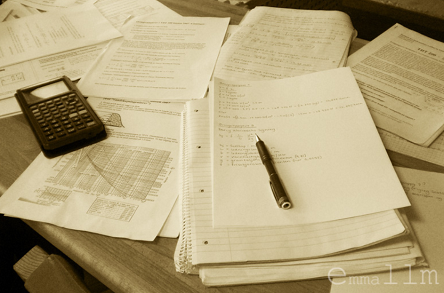
We’re not all equal in the way we process and assimilate information so it’s important to develop a thorough understanding of your learning style. If you’re a visual learner, then you may learn best by looking at images to get a grip of what you’re learning. If you’re an aural learner, you can learn by hearing and listening closely. Maybe you learn best by verbally repeating what you’ve learned to yourself or someone. Maybe you learn best when alone (in a quiet environment), in groups or by alternating between studying alone and in groups.
Start Preparing Early
Don’t wait until it’s 6 weeks to the exam before you start to prepare because this can leave you with all sorts of anxieties and make you ill prepared. Start preparing for the WASSCE the moment you know you’d write the exam.
I would like to quote one of my favourite quotes, “he who sweats more in training bleed less in war”. Making the habit of regularly preparing for the WASSCE part of your daily routine and
don’t fall into the trap of thinking you’d somehow rise without proper preparation.
Preparing early for the WASSCE puts you miles ahead of your peers who waste time on activities that distract them from their studies and leaves you calm when the exam is approaching while they frantically panic in anxiety.
Develop A Realistic Study Goals, Prioritise them And Execute
Developing realistic study goals is one thing but developing a plan on how to achieve each goal and executing on the plan is a clearer path to success. A plan without execution is the same as reading this guide without acting on what you’ve learned which is the same thing as not reading this content at all.
Developing a study plan is one thing but the ability to prioritise your study plan is most important and one way to make this easier is to set a realistic personal timetable. It’s important for your timetable to be realistic so you don‘t end up feeling miserable when you don’t cover the subjects or topics you planned to cover in your study.
For example, don’t allocate 3 hours on Monday to study 5 subjects when you know you’d likely not have enough time or energy to learn anything tangible as opposed to covering 3 subjects deeply and scheduling the rest for the next day.
Track Your Progress And Celebrate The Victories
We build happiness and confidence from progress. So it’s important to track the progress you’ve made regarding your learning goals and celebrate the victories. This would put you in a mental state to make more progress.
Don’t Plan To Depend On Anybody On The Exam Day

I understand humans are social creatures that depend on each other for survival. But the sad reality no one likes to talk about is you came into this world alone and would die alone. To understand this further, imagine being in a life and death situations — the most serious of situations — how many people do you know that would risk their lives or sacrifice their lives for you? Perhaps, you can say your mum or dad but even if that was true, they would not be with you in the exam hall.
The people you plan to depend on in the exam hall might completely ignore for the fear of getting caught(I’ve seen this happen with many students). They are highly likely not risk having their papers cancelled or getting arrested by helping you.
Therefore, deciding to rely on yourself on the exam day by preparing adequately for the exam puts you in a far better position than hoping to rely on your girlfriend/boyfriend/teacher or some other person which may leave you disappointed, frustrated and dejected.
Learn and prepare to stand on your own. You are your best saviour or investment.
Discover Your Weaknesses And Build On Them

Most people would tell you to focus narrow down on your strengths with your career but the reality is the West African Examination Council does not set questions considering your strength or weakness.
While I partly subscribe to the theory of narrowing down on your strengths rather on what you suck at, I also see the infinite beauty in getting good at something you’re not good at.
Some people argue that this would keep you from frustrating yourself and others.
I find this theory wrong because:
1. It prevents you from exploring your potential: You may not be 7ft tall and jacked up to play in the NBA, but should that stop you from playing basketball? What if you played basketball for 2 years only to realise you’re actually a superb ball handler and point guard?
2. It stops you from growing: Your strengths today may not be the important in the marketplace tomorrow so it’s always good to seek to improve by trying new things or working on your weaknesses.
Your weaknesses prior to the WASSCE could be anything from topics don’t find pleasant, poor/ineligible hand writing to poor drawing abilities.
For example, you may not be good at trigonometric integration. Yet, the little you’ve struggled to learn could fetch you a few marks on the WASSCE Elective Mathematics theory section. These few marks can make you move from a B3 to an A1. Do not forget this.
How To Discover Your Weak Topics:
One of the best ways discover your weak areas on the WASSCE is to cultivate a regular habit of practise with WAEC past questions.
Don’t Neglect Basics
I was a better writer when I was teaching. I was constantly going over the basics and constantly reminding myself, as I reminded my students, what made a good story, a good poem.—Gil Scott-Heron
Have you ever seen a professional footballer who can’t pass a ball properly but yet can perform dozens of freestyles? It makes little sense right? Passing a ball is a fundamental skill every footballer should know how to do so not knowing how to do this is as uncool as not knowing how to perform a basic freestyle with the ball.
Bring it back to preparing for the WASSCE:
Don’t go learning all the gas laws if you can’t covert from Kelvin to degree Celsius because an integral part of the question you might see on your exam sheet might award huge marks to a question asking you to convert from Kelvin to Celsius(this is only a hypothetical example)
Often times I’ve seen students struggle with complex topics because they have no grounding with the basics.
They assume that the basics to most topics are not that important or they assume they already know the basis only to realise that:
1).Assuming to know a topic without actually spending time to revise the topic is risky
2).Basics are important in having a deeper understanding of complex topics
3). Your chances of solving the toughest questions are better once you have a solid base.
Remember the saying, “a house built on sand cannot stand”
Don’t Neglect “Easy” Topics

Take any WASSCE past questions and you’re almost certain to see questions most students would consider “easy questions”.
Some of these “easy questions” are awarded high marks. Yet, students still do not answer these questions correctly. The reason is not that these students are not intelligent enough to get the question right. However, they were not prepared enough because they decided to neglect covering “easy” topics.
I’ve seen students who concentrated on covering topics they treated from SHS 2 to their final year. To them most topics treated in SHS 1 were easy and didn’t need much attention.
But WAEC surprised them by awarding a lot of marks to questions from topics they treated in SHS 1.
Don’t be one of these students. Don’t look down on any topic(remember, like I’ve previously said, a healthy dose of skepticism is essential in your study).
Know That You Come First
My high school proprietor usually said something like this:
You did not come to school with Kojo, Kwame or Christine, so forget them and focus on your studies.
I do not mean you should be selfish or anti-social but realise most of your high school friends would part ways from you after high school but your WASSCE / WAEC results go with you wherever you go.
If you fail the WASSCE / WAEC examination at the expense of helping others, you’re to blame.
Note: I should stress that I’m not saying helping others is bad, but when the help you give them becomes a liability-cut it off. Remember, it’s your life.
Put The WASSCE / WAEC Examination In Perspective

Don’t act as if you have nothing at stake before the WASSCE / WAEC exams.
Think about how best you can optimise your chances of passing the WASSCE every day.
Note: Don’t do this in an obsessed manner. You may go crazy.
Know The Exam Location Before The Exam Day
Some students have missed the exam because they didn’t know the exact location of their exam.
It’s not right for you to ask for directions to the exam venue on the exam day or a day before. Do all your investigations at least a few days before the exam day.
Never assume it’d be easy for you to find directions to the place if you don’t know where it is located.
Remove Fear From Your Dictionary
When we experience fear, our adrenal glands release adrenaline into the bloodstream. This causes a series of biological reactions in which:
- Increases blood and oxygen flow to our muscles so we can run faster.
- Restricts blood flow to other areas such as our stomach
- #Dilates our pupils so we can better see things around us
This is also known as the ‘fight or flight’ mode. In this state, our senses and reflexes become heightened which makes it easy for us to escape real and physical danger.
But these reactions are only helpful when we are facing real physiological danger. They do not help us when we are facing self-perceived dangers.
Self-perceived dangers don’t result in any physical harm. So, we only become held back by such responses when we don’t need them.
A WASSCE question paper should not make you fear because it can’t cause you any physical harm.
Self-perceived fear of the WASSCE does you no good. It’ll only cause you to make wrong decisions before the WASSCE or in the examination hall.
Think about the worse-case scenario if you fear the WASSCE and ask yourself if it’s that bad. If it’s shame or punishments from your parents, then think about these:
#Your parents should understand that failure is normal and shouldn’t punish you for that especially if you did you best.
#Most successful people have made failure part of their routine. The most important thing to get from failure is to learn from it.
So flush every trace of fear about the WASSCE from your brain. It does you no good. Rewire your mind for success.
Plan Like A Professional

Develop a strategy or plan for studying each subject before the WASSCE and stick to executing the plan.
I’m not talking of negative strategies like:
- How to sneak text books into the exam hall
- How to sneak mobile phones into the exam hall
- How to store answers in your calculator
- How to write answers in your body without being caught
I’m referring to positive strategies that worked for me, such as:
1). Knowing the topics you love the most
I’ve already advised you to become friends with every topic.
But some topics should reserve a special place in your heart. These are the topics you’re most likely to get correct.
For example:
My favourite topics for Elective Mathematics back when I was in high school included:
- Statistics
- Matrices
- Differentiation
- Integration
- Transformations
I usually got questions on the topics above correct. So, when they appeared on the actual paper. I wasted no time in choosing them. No wonder I had an A1.
2). Have planned introductions for your essay
This strategy has helped me to score great marks in the following areas:
#WASSCE English
Language question paper #IELTS Essay Writing
#SAT Reasoning Test
Essay Writing
I didn’t enjoy going through the hustle of trying to create an introduction. So I had about 5 pre-defined introductions stored in my head.
I’d select anyone that best fits the essay I planned to write or twist it to rhyme with it.
Understand The Exam Format For Every Subject You’re To Write
This would enable you to make smart decisions before the WASSCE.
For each subject you’d be writing, try to find out:
How long will the exam be?
How many questions will you be expected to answer?
How many questions do you need to answer to pass?
How many questions will you have to choose from?
What can you expect the questions to be about?
What are you allowed to take into the exam?
Will the exam be the same form as previous years?
Which questions carry the most marks?
For example:
You wouldn’t waste time answering questions with little marks if you know which ones carry most marks.
Develop Strong Alliances With Bright Students
One of my favourite quotes says, “You’re the average of the five people spend the most time with”, so if you’re spending time with people that don’t push you to become a better student or learner then you’re likely stagnating or receding academically.
Therefore, mix up with the brightest of students, form study groups with them, learn from them or do anything with them that would get you forward.
Leverage The Power Of Examination Centres (May / June WASSCE)

WAEC usually requests for WASSCE exam centres to purchase materials needed for the exam a few weeks prior to the exam.
You can use this to anticipate the questions likely to be asked (for test of practical).
For example:
If WAEC requests your school to get the following items ready before the Biology practical:
- Maggots
- Cockroaches
You can definitely guess the questions that would be asked in the Biology practical exam, as it would be an relating to maggots or cockroaches so you will likely read up on these organisms.
Develop Consistency In Active Study
This is one of the hardest parts in your preparation to pass the WASSCE / WAEC examination.
It’s one thing to make a promise to read every day, or to obey your timetable.
However, it’s another thing to keep to this promise.
Distraction, procrastination, and laziness shouldn’t be allowed to be. They are just ingredients that’ll guarantee you fail the WASSCE / WAEC examination.
Read Wide
While it’s best to cover every topic in the syllabus, there’s an extra benefit in covering more than what WAEC lists in the WASSCE Syllabus.
This is because WAEC is also known for setting trial questions. These questions are usually from topics that are not on the WASSCE / WEAC syllabus.
Spending a few minutes covering areas relating to topics mentioned in the WA|EC syllabus can place you in a position to answer a trial question and get it right. This could save you the hustle of answering a relatively harder question on the exam shines more light on your abilities.
Take Regular Breaks
Study breaks are important for several reasons. There’s a limit to what your brain can handle in any study session. Trying to push past that without giving your body any time to recover will just leave you tired.
Know The Contents Of The WASSCE / WAEC Syllabus
There is a possibility your teacher or textbook may not cover every topic in the WASSCE / WAEC syllabus.
It’s up to you to know which topics need to be covered prior to the exam.
Develop Consistency In Practice-Practice, Practice, Practice

Source: Flickr
Some students prefer to read than practice. But this is a bad learning habit.
Science even shows that constant practice improves performance so practice with some WASSCE past questions.
Get Familiar With Every Topic You’re Required To Know
Don’t cast a dice on which topics to cover. The WEAC Syllabus is a great place to know which topic to cover for each subject you’re going to sit.
We all know WAEC recycles questions from it’s WASSCE past questions.
But that doesn’t mean they can’t bring new questions from unpopular topics.
Take Notes
Take notes of important deductions, explanations, etc. during your study.
Exercise Regularly
I mean both physical and mental exercise that will rejuvenate your body and mind. Here are some exercises to perform:
- Play chess regularly
- Jog regularly
- Meditate or perform mindfulness sessions
Watch Your Health
It’s a terrible thing to be affected by sickness before the exam.So watch your health before the examination day.
If you’ve been bitten by lots of mosquitoes lately, take malaria medicine two week before the exam.
Otherwise, imagine the damage you’d face if malaria hit you a day before the exam.
Avoid Stress(AKA Have Some Fun Time)
It’s important you spend your time reading, but don’t over work your brain. Spend some time talking a walk down the beach and so forth.
I’ve seen students that spend the whole night reading, only to forget what they read the next day due to stress.
Cram For The Exam If You Have No Better Option
If you didn’t have time to prepare for the WASSCE in advance, you realise you don’t have enough time to cover the rest of your syllabus so cramming may be your best option. However, cramming is not an effective way to study, although it is better than not preparing at all.
It should also be noted that some topics might require cramming.
Learn How To Study Effectively
Effective study requires time management, note taking, clear mind, pace, active reading, memorisation and a few tricks.
Know That Your Teachers Are Important
For those writing the May / June WASSCE / WAEC examination, your class work makes up 30% of your score for each subject.
I believe you already know your teachers submit your class scores to WAEC.
Most teachers just give their entire students marks above 20 for different reasons.
However, if your teacher doesn’t like you, he/she could give you a mark that will guarantee you stand a hard chance of scoring an A on the WASSCE / WAEC examination. So repent from your sins if you are the type that always creates problems for your teachers.
Also, if you treat your teachers nicely, they’d be motivated to teach you to the best of their ability.
You may not like your teachers, but just act as if you do. You may even need this skill to excel in the real world.
Eat Well

Your brain won’t be able to function at its best if you’re not eating properly. Getting enough nutrients will allow your body and brain to function optimally while you study for the WASSCE and on the exam day.
Make sure that you eat the right food at regular intervals. If possible, go with non-disruptive snacks to the exam hall(juice, etc).
Stay Hydrated
It’s tempting to load up on caffeinated beverages when you’re studying for the WASSCE or on the exam day instead of a simple fruit juice or water.
But be careful. Caffeine will dehydrate you. Dehydration can cause fatigue and can also give you a wicked case of the caffeine jitters.
I’d recommend drinking enough water prior to the exam and carrying a bottle of water with you to the exam hall if allowed.
Develop A Healthy Rest Habit
An all-nighter might sound like a great idea and impress your friends but developing a healthy sleep habit is one of the important keys to success on the WASSCE. Sleep improves retention and refreshes your mind. It also and gets your energised for the next day or task.
Pray For Success If You’re A Believer
Atheists may not believe in prayer. However, I’m a bit spiritual(not religious), so I’d say pray for God’s guidance prior and after the exam.
Besides, there are many psychological benefits of prayer. According to Wikipedia:
Many accept that prayer can aid in recovery due to psychological and physical benefits. It has also been suggested that if a person knows that he or she is being prayed for it can be uplifting and increase morale, thus aiding recovery. (See Subject-expectancy effect). Many studies have suggested that prayer can reduce physical stress, regardless of the god or gods a person prays to, and this may be true for many reasons. According to a study by Centra State Hospital, “the psychological benefits of prayer may help reduce stress and anxiety, promote a more positive outlook, and strengthen the will to live.
Part 2: Actions For The Exam Day
Here are the tips you need to follow on the exam day:
Be Confident
If you’ve obeyed all the strategies shared above (taken notes, attended classes, etc.), you should be confident you’re ready to take the exam. Having this confidence and visualising yourself passing the exam will help your performance on the exam day.
Check Yourself Properly Before You Enter The Examination Hall
I’ve heard stories of students disqualified even though they unknowingly carried unwanted materials into the exam hall.
So make sure you’re not with any unwanted material before you enter the exam hall.
Have The Materials Needed For The Exam and Backups
Write everything you need on a piece of paper and make sure you have them at hand before the exam.
You should also make sure you have the duplicate copy of any necessary material you need.
These include:
- Pen
- Pencil
- Calculator
- Eraser
Read Carefully Before You Answer
Read your question paper actively and carefully. Don’t be in a hurry to assume you know what the question asks for.
Look out for these words or phrases:
- List
- List and explain
- Enumerate
- Describe
- Expatiate
- Deduce
- State
- Differentiate
I’ve seen students that “listed” when the question requested for an explanation.
I’ve seen students from Ghana who answered questions meant for students writing in Nigeria.
If you make any of these mistakes, the marker may not award you the full mark or any mark.
So be careful before you answer your questions.
As Nigerians would say: “Shine your eyes well”.
Fill Your Details And Answers Carefully
Don’t make mistakes in filling your answers or inputting your details to the answer sheet.
Use Your Calculator To Perform A Few Tricks Where Necessary

We all know calculators can perform calculations in no time.
However, you can also use them to solve complex problems in no time.
This would save you the stress and time you may go through when solving it manually.It will also help you to crosscheck your values in no time.
Some acceptable calculators on the WASSCE can solve quadratic equations, simultaneous equations, etc.
Examples are:
- Casio Fx-83gt plus
- Casio Fx 991ES Plus
Arrive Early
Arrive at least, one hour before the start of the exam.
Know When To Go The Extra Mile
For example:
Some questions may not directly ask you to provide diagrams. However, to get the full mark or extra points, you may need to provide a diagram.
This is most popular with questions that use the following keywords:
- Describe
- Show
- Explain
Utilise Short-Cuts Where Necessary
Illustration 1:
If you’re doing a chemistry practical on titration, and you are sure of the endpoint value in you first experiment.
Don’t waste your time carrying out another experiment. Just add +2 or -2 to your endpoint value to get the subsequent values
Illustration 2:
Ratios and proportion: For a physics experiment that requires you to determine the current I, where length (l) is 15cm, 40cm, 50cm, 60cm and 70 cm.
You can carefully perform the experiment for the first value(l=15cm), and use ratios and proportions to generate consequent values.
Note: You can intentionally introduce some errors in other not to attract suspicion from the marker.
Applying The 80/20 System In Answering Your Questions
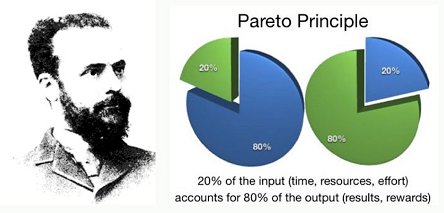
The 80/20 rule(also known as the pareto rule) is a theory that suggests that 20 percent of your activities account for 80 percent of your results. So you should first focus on answering questions on topics you’ve mastered that have the most marks when dealing with the theory section.
Leave No Questions Unanswered Except You’re Completely Clueless
Most students don’t understand the examiner can choose to award marks for simply trying. So a question attempted even if it’s the wrong answer may get some marks for trying or showing the student has some understanding about the topic.
Skip Any Question you Don’t Understand
I’ve always advised to leave no questions unanswered in other to improve their chances of fetching extra marks.
However, If you can’t answer a question on the examination day, spend a few minutes to think about it and if you still do not understand what to do, then move on to the next question.
Presentation Is Key
Most students forget that the examiner can give extra marks for a good presentation of work for a question even if the answer is wrong. Besides, a clean and pleasant presentation psychologically can lead to the halo effect which can influence the market not to be too strict while marking your work.
- Use good English
- Draw nicely
- Arrange your work properly
- Avoid a dirty work
- Cancel neatly
- Write eligibly
- Underline sentences or words where needed
Obey The Rules
Rules are meant to be obeyed especially in the examination hall. Failure to do so can get you punished.
Speed Up

You only have a certain amount of time to complete an exam, so pace yourself as you work. This will ensure that you get through every section of the exam.
Also, it’d save you enough time to review your work.
Have A Watch
You need to keep track of the time you spend in any question.
It’d help you pace yourself during the exam.
Be Calm
If you are restless, you may not know when you’d say 1+1 is 10. If you’re too excited because you find the questions easy, you may make mistakes. The key state to be here is neutral.
Review Your Work
Review your answers before you submit your exam. Look for any incomplete or missing answers, errors, etc.
Don’t Create A Scene
Don’t join other students to do things that would annoy the invigilator.
Don’t argue with the invigilator.
Don’t disturb other examiners.
Raise your hand when you want to speak to an invigilator.
Avoid Any Form Of Cheating
I know you want to pass the WASSCE, but it’s not right to do so by cheating. Here’re reasons:
Cheating is lying: It gives the examiner a false sense of what you know.
Cheating is stealing: Any grade achieved through cheating is not yours.
Cheating causes stress: You’d always be hiding and worried of being caught.
Cheating could cause you to fail: Your paper could be cancelled. Also, there are chances you’d copy the wrong answer since you probably know little about the topic.
You’ve been given a brain with so much capabilities, you can use it to ace the WASSCE without cheating.
Besides, there’s an incredible amount of students out there that have passed the WASSCE / WAEC examination without cheating, and you can do the same too.
Apply Strategies From Part One
Some strategies from part 1 that can be applied in part include developing a healthy sleeping/resting habit, staying hydrated prior to and during the exam.
Part 3: After the exam
Keep Any Worries Off Your Head
The stoics always say you shouldn’t worry about things you cannot control. There’s no point worrying about what would be your performance on the exam after you’ve submitted your work.
Keep Learning And Applying What You’ve Learned
Continue the habit of learning after your exam and realise learning is a lifelong process. Besides, you might have gained some transferable skills in high school that can be applied in the real world
Build Up Your Emotional Insulation
You should be indifferent to the results of the WASSCE.
Understand There Are Alternatives
Many people are still deluded enough to think going to the university is only pathway to a fulfilling career.
The WASSCE is only one out of many other exams or pathways to higher education.
The internet also provides many opportunities for learning and today you can even achieve a respected degree via distance learning or acquire a high-income skill.
To make this point sink, my younger brother (Bezaleel had one of the best IGCSE result in Ghana. He moved to Rwanda to study at a school that offered the international Baccalaureate program. He achieved a great result and was accepted by universities such as the University of Edinburgh to study Mechanical Engineering. The problem was there was no money to pay his fees(it was too expensive) so he had to stay at home for over a year. During this time he was immersing himself in programming and applied to join Andela Fellowship(after listening to my advice).
Guess what? He was called for an interview and a invited to join their boot camp? He was competing for a position in Andela’s team with graduates, and people who spent years in university yet the recruiters saw value in him. The internet through free courses allowed him to lean a valuable skill that’s sure to take him places.
One of my favourite quote of mine is, when life “When life gives you lemons, make lemonade”. So nothing stops you from considering alternatives.
Conclusion
If you’ve reached this far by reading every line above, clap for yourself. You’ve done well.
I hope you follow the instructions in this guide to the fullest and come back with your success story.
Consider bookmarking this page for easy reference in the future.

Connect With Me
Connect with me on Instagram and Facebook(@giovanniolakunori)
Are you still one of the few that still feel lost about what to do even after reading this guide?Use the comment section below to ask for help or send us a message and we would get back to you.
Best wishes.
First published: 29/08/15
Updated: 16/03/19
Created by: Giovanni Olakunori.


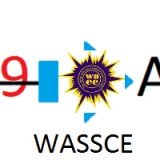


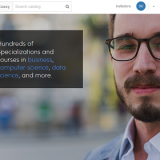

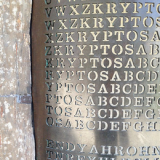



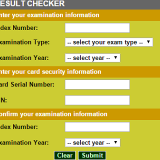

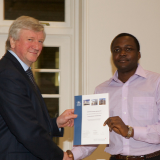


The details I saw on your site has been very helpful. I have been carrying out studies lately on how to pass WAEC easily and your site has been one of the sites I have visited, your site left me with a lot of details to look back to. Thanks for posting something this good and keep up the good work. I also have some useful tips you might also like, click this link to access my site. If this helped you can also check out biology I really hope you like it.
Thank you. Best wishes with your site.
thank you in the name of God. the advice is greatly touching to me
You’re welcome. Best.
This is powerful
I’m soo happy I read everything ,which will guide me this Wassce 2021.
I hope I come out victorious.
I have Faith.
Hardwork pays.
That’s the spirit! I wish you the best.
but sometimes people done their best but yet still they endup with fail result
Not everything goes to plan. I covered that in the guide…Please read it again. Best.
thanks
Woaw
This is so great????
Thanks so much….how can I follow you on facebook??
I’m glad you found it useful. Search for my page,’Giovanni Olakunori’ (Link: https://www.facebook.com/Giovanni-Olakunori-1941820676065960/). I wish you all the best! Thank you.